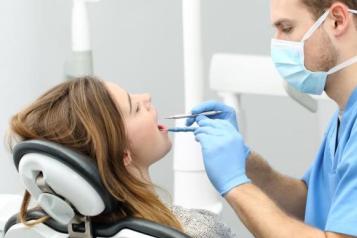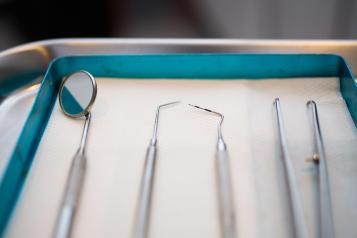Top 10 ways to get the most out of your next dental appointment

1. Prepare for your appointment
It is important to let your dentist know if you've been experiencing any dental pain or problems with your mouth or teeth. It is a good idea to write down your symptoms, worries and any questions you would like to ask.
2. Tell your dentist if you’re feeling anxious
Many people feel nervous about going to the dentist, but if you're anxious, help is available. Talk to your dentist about your fears and take a look at this guide.
You can also ask a relative or friend to accompany you for support.
3. NHS or private care?
Do you know whether you’re being seen as an NHS or private patient? Most high street dental practices provide both types of care. If you need treatment, make sure you understand how much it will cost before committing to it. There are four standard charges for routine and emergency NHS treatment.
4. Are you eligible for free NHS treatment?
Some people are entitled to free or partial help to pay for NHS dental care. To find out if you’re eligible for help with your health costs, take a look to see if you meet the NHS’ criteria.
5. Ask your dentist for a treatment plan
You might be charged more for some dental treatment, such as fillings, removing teeth and more complex procedures. These usually fall into NHS charges for bands two and three. If your dentist recommends this type of treatment, you should be given a personal dental treatment plan. This will list all the treatments you are having on the NHS and what you should expect to pay. Your dentist should also discuss any alternative private treatment with you and give you the cost in writing before you commit to it.
6. Follow the advice your dentist gives you
During your appointment, your dentist should advise on how to take care of your teeth to avoid gum disease and tooth decay.
7. Not clear on the treatment plan? Ask again
Make sure you fully understand your treatment and any aftercare before you leave the room. If you don’t, then ask your dentist to go through the plan again. Find out who you can contact if you have any questions after your appointment.
8. Find out when you need to return for your next check-up
Your dentist should advise you when they’ll need to see you next. You can expect to return between three months to two years, depending on how healthy your teeth and gums are. However, if you are under 18 years old, it is recommended that you see the dentist at least once a year.
9. Do you have a disability, impairment or sensory loss?
Legally, if the NHS partially or fully funds your treatment, your dentist should make sure that you are given information that you can easily read or understand to make sure your needs are met. Read our article to find out what you should expect when it comes to accessible information.
10. Unhappy? Find out how to make a complaint
It's usually best to speak to the dental surgery first to try and resolve the issue. If you’re still unhappy about your care, ask for a copy of the complaints procedure from your dentist. You can also read a guide to making a complaint about your NHS dentist.
Further help
The NHS website has a range of information on using dental services, including:
Looking for an NHS dentist
To find an NHS dentist in your area, you can visit the NHS website, search for your nearest dentists and look at whether they are currently accepting NHS dentists.


